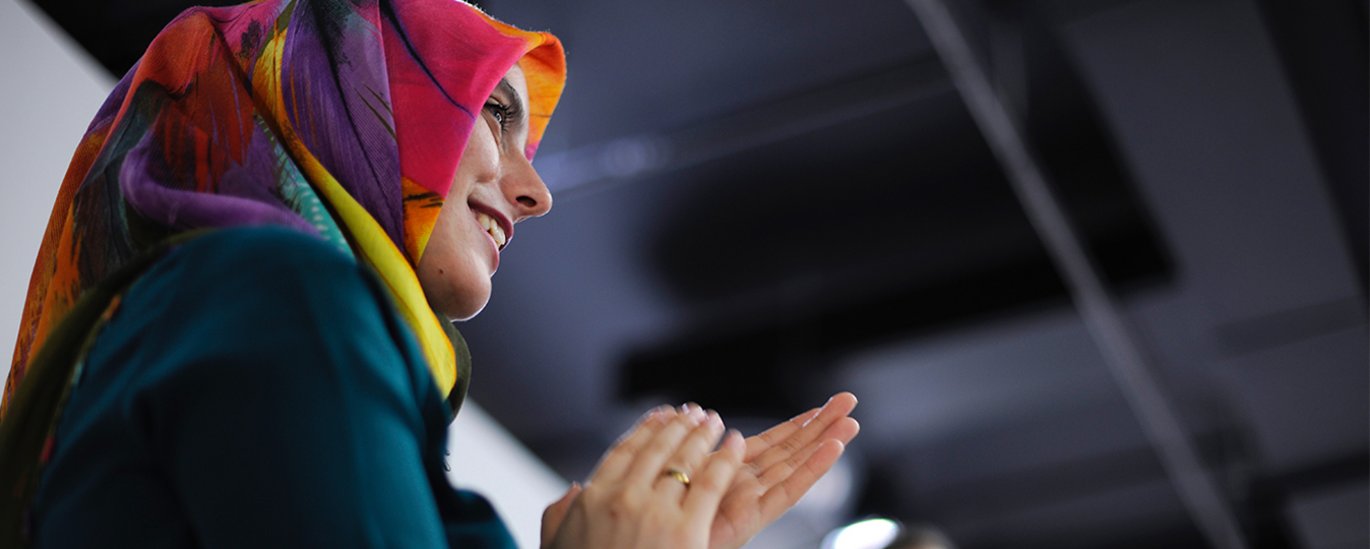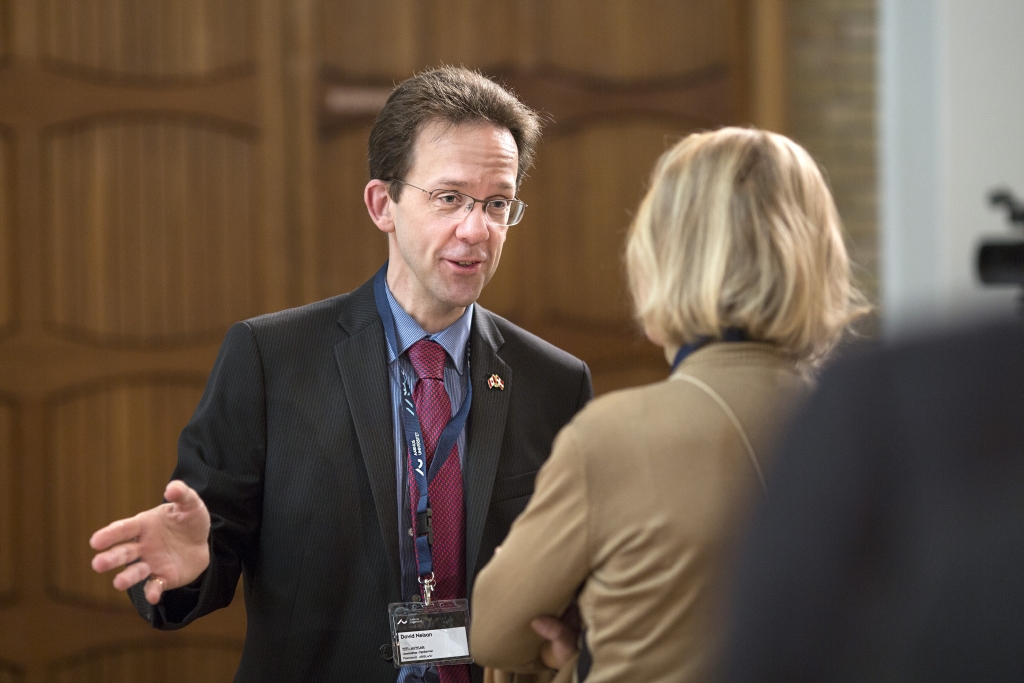You can also be Danish wearing a headscarf
The notion of Danishness needs to be challenged. We need to break down the black-and-white ideas of what it means to be Danish and what it means to be a Muslim. According to a researcher from Aarhus BSS, children of immigrants need explicit acceptance from their friends that it is OK to wear a headscarf or stay away from alcohol before they feel able to combine their ethnic and Danish identities.

“Many young descendants strongly believe that being Danish is all about looking a certain way and speaking perfect Danish without an accent. In addition, having a Muslim background is seen as a hindrance to being Danish. In other words, these are basic identity markers that you often cannot change. To break down this idea of what it means to be Danish, you need affirmation that you can be Danish despite having black hair, dark eyes and wearing a headscarf,” says Kristina Bakkær Simonsen. She is behind a new study which shows that opening up for new ways of being Danish requires interaction and friendships between immigrants/descendants and majority Danes.
This interaction must be deep and meaningful, but it is even more important that it explicitly challenges the rigid notions of what it means to be Danish. You need to clearly and explicitly accept that there are other ways of doing certain things. This includes things such as drinking alcohol, wearing a headscarf, changing and showering after doing sports, going to parties, having relationships, etc.
“To achieve the kind of interaction that seems to ‘work’, ethnic Danes need to become aware of the role they play in changing the rigid conceptions of Danish identity among immigrants and their descendants,” says Kristina Bakkær Simonsen.
Double identity is a good thing
A few people succeed in combining their ethnic and Danish identities, and this greatly benefits both the individual and society. You are in a stronger position when you can accommodate both, and it seems to strengthen a person’s relationship with the host nation. Many of the young people who Kristina Bakkær Simonsen interviewed and who have succeeded in uniting the two identities, readily tell their Muslim friends that it is possible to maintain both identities and encourage them to do the same.
“These descendants are very explicit about Denmark being their country. They insist on being who they are and are proud to be Muslim, without compromising on being Danish. They are so sure of being Danish that they refuse to be offended. In this way, the double identity works as a defence shield if you are confronted with negative rhetoric about immigrants and their position in society,” says Kristina Bakkær Simonsen.
Born and bred in Denmark, a Danish citizen, but still not quite Danish
Many feel, however, that it is not possible to be Danish and have another ethnic identity at the same time. They feel that they have to choose sides. This can be difficult, and they do not always feel that they have an actual choice.
“I interviewed a young girl, who told me that she was upset that she couldn’t show her family who she was. She had to hide the fact that she was in love and went to parties from her parents and siblings. She also had to be careful not to take too much with her from home when she was with her friends. In fact, she would really like to show people all of the things that make up who she really is, but at the moment she puts on a mask when she leaves her house and she puts on a mask when she returns,” says Kristina Bakkær Simonsen.
The political discourse also creates a sense that it is not possible to have two identities at the same time.
“It’s a rather naïve perception of identity to think that being part of a society means having to reject where you come from. We see the same thing in the debate on dual citizenship. Here, the belief is that you cannot be loyal to two countries at the same time,” says Kristina Bakkær Simonsen.
Difficult conditions in Denmark
The study on Danish people’s attitudes towards immigrants shows that people are divided almost equally between having an overall positive or negative attitude towards immigrants. 50 % of all Danes support the idea that immigrants must be assimilated into Danish culture. They associate immigration with social tension and view immigrants as people who take advantage of the welfare system.
Denmark is known as a country where the borders between “us” and “them” are excluding - in contrast to countries like the US where having a dual identity, e.g. “Irish-American” and Japanese-American”, is more accepted. For this reason, Kristina Bakkær Jensen believes that it is interesting to study the role of interaction and friendships in a Danish context where immigrants find it hard to feel Danish and maintain their ethnic origins at the same time.
In her study, she conducted a statistical analysis of 3404 first and second-generation immigrants. She also interviewed 20 young descendants of immigrants. The study showed that in order to break down stereotypes and prejudices, a person needs to interact also solely with Danes. However, if this interaction does not include an acceptance of being different, the person would still feel a conflict between being of another ethnic origin and being Danish. The reason is that the interaction will confirm rather than lessen the feeling of an excluding border between “us” and “them”.
Immigrants are often affected by the media and the political discourse. Both depict the borders between “them” and “us” as sharply drawn. When we engage in personal interaction, we view it through this lens. Thus, we will interpret someone looking at us in the street negatively although this might not be the intention of the sender. Immigrants might expect to be treated badly or not be acknowledged. But positive and affirmative interaction between them and the Danes eradicates such expectations and allows for new positive perceptions of the host nation. Having more than just a superficial interaction with the host nation makes immigrants feel that they share convictions and values with the Danes,” says Kristina Bakkær Simonsen.
The study was recently published in International Migration Review.
“In our everyday encounters with immigrants, we Danes greatly influence whether they feel like they are part of the Danish people and part of society,” says Kristina Bakkær Simonsen in this video on her previous research into integration (in Danish only):
Further information
Kristina Bakkær Simonsen
Aarhus BSS
bakkaer@ps.au.dk
+45 8716 5349
Related content
- Research news: Should Denmark be a closed club?
- PhD defence on 8 December 2017: Do they Belong? Host National Boundary Drawing and Immigrants' Identificational Integration
- Course on 10 April 2018: Mangfoldighedsledelse og diversitet i organisationer (in Danish only)
